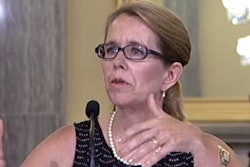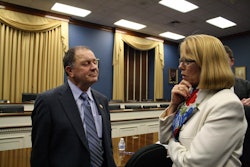
Rep. Bill Shuster (R-Pa) and Rep. Thomas Petri (R-Wis.), two leaders on the House’s transportation committee, penned a letter to U.S. Comptroller General Gene Dodaro, requesting that the GAO evaluate the agency’s recently released field study on the hours rule — specifically, the 34-hour restart provisions — and FMCSA’s Regulatory Impact Analysis used during the rulemaking process.
Shuster, chair of the House’s Transportation and Infrastructure Committee, said because of the restrictive nature of the hours rule on drivers and carriers — particularly its potential impact on pay and productivity — “we have to be certain…changes to regulations…are well founded,” he said.
“Concerns have been raised that these regulatory changes may have been enacted without proper data or analysis, and if the Administration is going to change the rules on truck drivers, we need to know that the changes were thoroughly vetted and will improve safety,” he said.
For the agency’s field study, Shuster and Petri have asked the GAO to review several basic elements:
- Did FMCSA collect the right safety and operational data?
- Was the driver sample accurate and representative?
- Was a possible increase in truck traffic, because of the rule change, evaluated?
- Were the driver groupings used by the agency appropriate?
For the Regulatory Impact Analysis, the Congressmen are requesting the GAO to ensure:
- the consistency of the “assumptions and methodologies,” and FMCSA’s justifications for the rule
- the crash data used in the RIA was “current and appropriate”
- the assumptions the agency made about driver health were “appropriate and reasonable” and could be backed up with other data analysis; and
- no “errors, inconsistencies or assumptions” affected the agency’s conclusions regarding the costs and benefits of the new regulations.
FMCSA released the results of its Congressionally required field study in late January, and it concluded that the hours rules boosts safety and makes drivers less fatigued.
The agency’s findings, though, ran counter to those of trucking trade groups who performed their own studies: The American Transportation Research Institute, part of the American Trucking Associations, reported 80 percent of carriers in a survey done in November saw their productivity shrink because of the rules.
ATRI’s report also said that nearly 70 percent of drivers surveyed had seen their pay drop since the new rules took effect.
Similarly, the Owner-Operator Independent Drivers Association in a survey of its members found that 65 percent of the 4,000 driver respondents saw a pay drop, and 46 percent said they felt more fatigued under the new rules.
“I continue to hear concerns from drivers and companies in Wisconsin and around the country about the impact of this 34-hour restart,” said Petri, the chairman of the Subcommittee on Highways and Transit. “We need to make sure the requirements are based on sound facts and actually improve safety rather than just overwhelm the industry with another onerous regulation.”
In both the House and the Senate, bills are in committee that would, if passed, overturn the current hours of service rule at least temporarily and allow drivers to operate under the previous rules until the GAO has studied the agency’s methodology.
ATA’s Executive Vice President Dave Osiecki said in a statement the agency welcomes further analysis on the hours rule:
“We appreciate Chairmen Shuster and Petri’s leadership on this important truck safety and operational issue. ATA believes any new requirements affecting millions of professional drivers must be based on a sound research foundation, good facts and relevant data analyses. Congressmen Hanna and Michaud also deserve a great deal of credit for focusing attention on the unintended consequences of these new hours of service rules. ATA looks forward to GAO’s evaluation of the studies at issue.”











